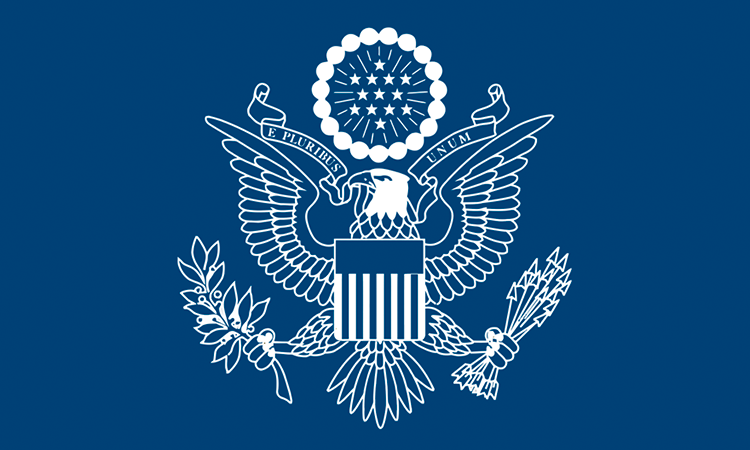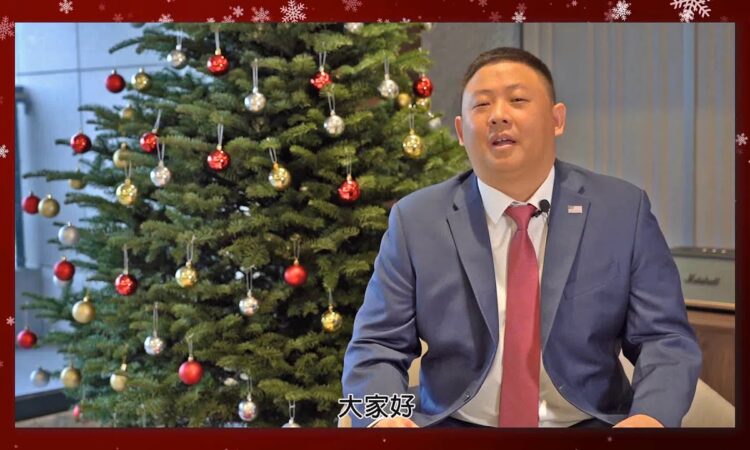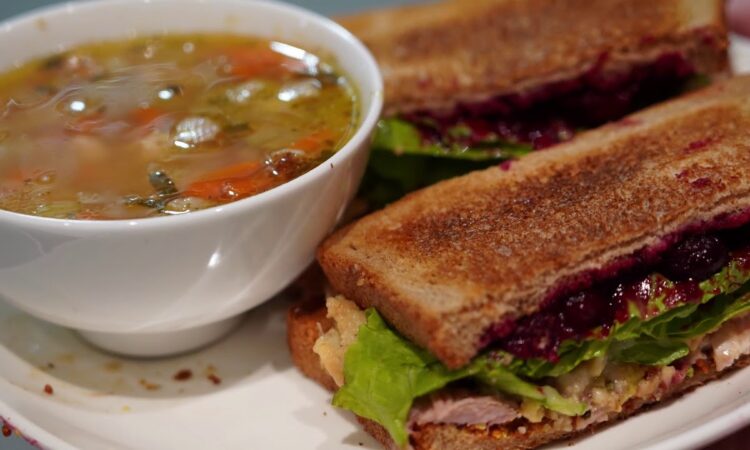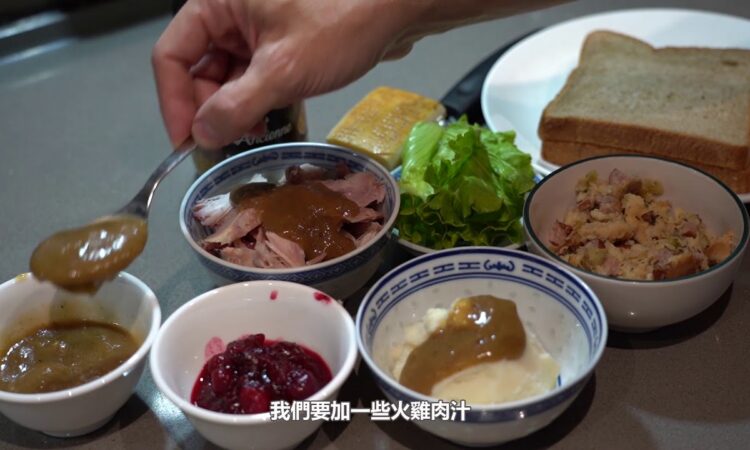June 26, 2009
AIT Official Text #: OT-0913C
TRANSCRIPT
DIRECTOR YOUNG: Good morning. [In Chinese: Good morning, everyone. Sorry, but if I speak in Chinese, you might not understand my meaning, so I’ll practice my English.] And I am going to ask the first question of the guy with the Red Sox hat in the back. [Laughter.] He’s hiding.
It’s very nice to see all of you for one last time. [In Chinese: This is the last time.] In the spring of 2006, when we first met like this, that is, not in a scrum in the corridors of the Legislative Yuan, and not in the Foreign Ministry by the elevators, I promised to meet with you regularly every six months. I have kept that promise. I have kept it, because I believe strongly in the power of a free press and an informed public. I may not answer every one of your questions to your complete satisfaction, but I will do my best, allowing for the fact that diplomacy requires just a little bit of discretion.
Overview of Bilateral Relations
I also want to thank many of you for coming out to Neihu on a muggy, warm morning last Monday to cover what I consider an important milestone. That was the dedication of AIT’s new office compound, reflecting the 21st Century strength of U.S.-Taiwan relations. Our relations with Taiwan today, governed by the Taiwan Relations Act and other aspects of our China policy, are in good shape as I prepare to conclude my tenure as AIT Director. They are in good shape because we have so much in common, both in values and in interests.
Economic Relations
Our economic interests are so strong, despite the global downturn, that I am confident our two closely intertwined economies will recover in tandem over the coming months. We should both look to the Trade and Investment Framework Agreement (TIFA) process, which has served us well in the past, to address shared goals, including stronger protection of intellectual property rights, a possible [bilateral] investment agreement, e-commerce cooperation, and other targets of opportunity. The Obama Administration is also working on our shared interest in an extradition agreement that will enhance already strong law enforcement cooperation.
Cross Strait Relations and Security
As Washington and the American Chamber in Commerce have both made clear, we welcome the improved cross-Strait economic ties pursued by President Ma, which both reduce tension and provide opportunities for all of us in these economically difficult times. At the same time, under the Taiwan Relations Act and our longstanding practice, we will continue to cooperate with Taiwan to enhance its security and give it the confidence to explore additional interaction with its large neighbor.
Taiwan’s Democracy
Continued strengthening of Taiwan’s young democracy is also a shared goal of our two peoples. We do encourage greater dialogue across partisan lines on the difficult issues, not because the ruling and opposition parties will always agree — that’s natural in a democratic society — but because it serves everybody’s interests to identify common ground as well as frankly but honestly discuss differences. A quick glance around the globe at societies as diverse as Thailand, Ukraine, Lebanon and Iran shows the dangers of an absence of such genuine dialogue.
What I will miss…
As I prepare to conclude this tour [of duty], I’ve been asked repeatedly what I will miss most when I leave Taiwan for the fifth time over the last forty-six years. It is a tough question, because I’ll miss lots of things. I’ll miss your beautiful mountains, where you can get far away from the teeming streets of Taipei. I will miss bicycling along your gorgeous coastal roads with my Taiwan and American cycling buddies. I’m taking four Giant [brand] bicycles back to the United States with me, so I’ve made my contribution to Taiwan’s stimulus package. One is for my wife, who has become a very avid bicyclist in the last several months. [In Chinese: Hers is the most expensive. But that is the way it should be.]
But most of all, I’ll miss all the wonderful people I’ve been privileged to meet here. Just to mention a few, it was my pleasure last year to meet [New York Yankees pitcher] Wang Chien-ming and his lovely wife, who now have a new baby boy named J.J. [Justin Jesse]. [In Chinese: He still doesn’t have a Chinese name, but wait a bit.] And I’m confident that Mr. Wang, and this is a little bit of slang, will get his “mojo” back on the mound this summer. I just hope it doesn’t come at my Red Sox’ expense.
I will miss bicycling with Giant’s founder Mr. Liu Jin-biao [King Liu], who has inspired people around the world to get back on their bicycles. I have been honored to meet [Dharma] Master Cheng Yen a couple of times, and I have been inspired by her faith and contributions to global humanity through the Tzu Chi Foundation. I was also inspired last month by 93-year-old Mr. Peng of Taipei, who I met while climbing Taipei 101 for the sixth time. He told me afterward that he runs and bikes regularly to keep in shape. That’s amazing. I’ll miss my many friends in the Taiwan business community who daily reaffirm my confidence in this island’s spirit of entrepreneurship. In short, I’m leaving a lot of friends here, and I look forward to visiting this beautiful island in future years.
I’m ready for your questions.
QUESTIONS
MR. LEE CHIH-TE, UNITED DAILY NEWS: I have a question about arms sales. After the presidential election last year, both sides of the Taiwan Strait have grown closer and closer, but there is a concern about the risk that sensitive U.S. technologies leaking through to China will be higher, and my question is, what do you think about that concern? Another question is, do you agree that the U.S. government should continue to transfer the next-generation arms systems to Taiwan, such as advanced fighter jets, Aegis systems or diesel-powered submarines?
Weapons, Defense and Technology Leakage
DIRECTOR YOUNG: We have a good framework in place for managing our security relationship with Taiwan under the Taiwan Relations Act (TRA), and it has now been effective for over thirty years. During the campaign last year, at the time that President Bush notified an arms package to Congress, President Obama reaffirmed his commitment to the TRA. I think that stands again today. I was in Washington earlier this month and had the chance to talk with a number of foreign policy and Asia experts in the Obama administration. American policy makers very much take note and welcome the reduction of tensions between Taiwan and its neighbor across the Strait. But we’re also aware of the relentless buildup of military strength by the PRC, much of it directed precisely toward Taiwan. We’re also very much aware of the Ma administration’s interest in continuing to pursue security cooperation, including weapons purchases from the United States. So I think that the Obama administration will calculate the requests of our Taiwan friends in that light and at an appropriate time will make decisions about what types of defensive weapons it might make the most sense to provide this island.
As to the other aspect of your question, I don’t really think there is a great concern about the transfer of technology from Taiwan, because I think that Taiwan has very effective means of controlling that technology, and as President Ma himself has said, the relationship with China is going to unfold very slowly and over many, many years.
Battle over Defense Budget
ELLA CHOU, COMMERCIAL TIMES: Director, I look back on these three years that you have spent in Taiwan, and a lot of things have happened, some quite exciting, some embarrassing. What do you think is the biggest accomplishment you have made? I also remember the November 2006 press conference you gave us in this room. You asked the Legislative Yuan to pass the budget for arms sales as soon as possible, but that made our lawmakers quite angry. Especially the KMT legislators — they asked the United States to recall you. So how did you get through this?
DIRECTOR YOUNG: I just happened to be at dinner with a number of legislators, many of them from the KMT, last night. An individual who is very high ranking in the KMT Legislative Caucus answered your question better than I ever could. The subject of the controversy back in November 2006, over my remarks urging the Legislature to pass a defense budget that allowed for the purchase of new weapons, came up in our discussion. He said: “You were right, we were wrong; it was just politics.” More concretely, I think the Taiwan Legislature — in a bipartisan fashion — has provided the kind of budgets that have allowed not only for specific weapons purchases but also for a general focus on the modernization of Taiwan’s defensive capabilities in the last couple of years, particularly in summer and fall of 2007, before the election.
Can I think about the accomplishment question and get back to you at the end of the press conference? I’m inclined to say, “bicycling from Hualien to Chihpen and from Chihpen back to Hualien with a “nifeng” [headwind].” Three hundred seventy kilometers in two days!
TIM CULPAN, BLOOMBERG: I was going to get you to get up and demonstrate the moonwalk but I’ll try and keep things highbrow instead. As the U.S. diplomat with perhaps the longest relationship or most experience with Taiwan – you’ve seen it change over 46 years — I was wondering if you could answer right now which Michael Jackson song best represents U.S.-Taiwan relations.
DIRECTOR YOUNG: The problem is — and you probably should know this — I’m a Grateful Dead and Bob Dylan guy. By the ‘80’s I had begun to give up on American popular music. I’m sorry that Michael Jackson died, but I’m not going to be able to give you a Michael Jackson song. I’m glad that it isn’t “Thriller”– let’s put it that way.
See, my kids are educating me about more modern music, but they weren’t around for the Michael Jackson years. They like groups like Gogol Bordello or Cake or Kings of Leon, but we skipped the Michael Jackson years. I could go on a lot farther, but I think we’d probably lose the rest of the audience.
President Ma’s U.S. Transits
MR. HSUEH SUNG-CHIEN, CHINESE TELEVISION SYSTEM (CTS): I understand when President Ma was traveling through the United States, the visa said “Taiwan President.” Is that an indication of warming up or elevation of U.S.-Taiwan relations?
DIRECTOR YOUNG: Our relationship is quite warm already. The way in which we’ve managed transits has long had a standard approach, based on the comfort, convenience, safety, and dignity of the traveler. We very much respect President Ma’s willingness to work with us on the nature of these transits. I don’t think the way these visas have been issued has changed over time. We hope he has a restful stop in San Francisco at the beginning of next week and a nice transit of Hawaii at the beginning of July.
The Beef over Beef
JENNY HSU, TAIPEI TIMES: Just a couple of questions. In the news lately, it’s about U.S. beef: Taiwan might be opening a full range of U.S. beef [exports] to Taiwan. Can you give us an exact date when that might happen? Also, another date I’d like to get from you is, when are you actually leaving, and when is your successor coming, and who is he? Thank you.
DIRECTOR YOUNG: How many questions was that, Jenny? I don’t want to take too long, but I appreciate your asking the beef question, because it’s been on my mind. I arrived here in March of 2006, just a couple months after President Chen Shui-bian reopened Taiwan’s market to boneless beef. And pretty much ever since then, I have represented the American interest in seeking a science-based approach to fully opening Taiwan’s market to all U.S. beef.
We worked closely with the Chen administration and got pretty close toward the end to reaching a mutually beneficial resolution of the issue, but we ran out of time. The Department of Health under the previous administration had come pretty close to completing a risk assessment of the science behind American beef.
It’s natural that the Ma government wanted to revisit the issue, and the Department of Health completed a risk assessment with our cooperation in January and posted it on their website. I have had many discussions with my friend Minister (Yeh Ching-chuan) and with other members of the Taiwan government and Presidential Office about this issue in the ensuing months.
As I’ve always said publicly, all we were asking for was a science-based determination that is grounded in international standards as set by the OIE [World Organization for Animal Health].
Departure and Successor
I will be seeing, hopefully, many of you at the National Day celebration next Thursday afternoon at the Grand Hyatt Hotel next door, but I’ll be leaving shortly after that. We’re getting very close to working out with our Taiwan friends the identity of my successor. That announcement, when it comes, will be made in Washington.
As the tenth AIT director here in Taipei, I reflect on the fact that I have followed in the footsteps of nine very distinguished and competent diplomats. If I have done my job as effectively as they, I would consider that a great accomplishment. I can assure you that whoever President Obama selects to send to Taiwan next, with the approval of our Taiwan friends, will follow in that tradition and be a competent and effective representative of American interests here and of this very important relationship.
Travel of Former Taiwan Presidents
MR. BRANDON WANG, CTI TELEVISION: The former Presidential adviser Wu Li-pei said that you promised former President Chen Shui-bian that he would be able to get into the United States once his tenure ends. Is this true? Did you really promise that?
DIRECTOR YOUNG: It has always been our position that a former president of Taiwan should be treated as an ordinary citizen, and the presumption inherent in that statement is that that person would be free to travel to the United States. I think the experience of former president Lee Teng-hui bears that out. I can’t get into individual cases, but I think we all know that President Chen Shui-bian is otherwise occupied these days.
Taiwan’s Security
MS. DEBBY WU, ASSOCIATED PRESS: Back to security. You were saying that the U.S. is still committed to cooperating with Taiwan to enhance the island’s security; and you also said that there are no great concerns for the transfer of sensitive [U.S.] technology to Taiwan, because Taiwan has the capability to maintain its classified information. I was just wondering, if that’s the case, why the Ma administration’s request to procure F-16 C/D fighter jets from the United States still hasn’t been approved. Is it because the Obama administration has yet to have time to review the request, or are there some other factors?
Another question related to security is that I remember when you were just taking over your position, or right before you returned to Taipei a few years ago, Richard Armitage, then the Deputy Secretary of State {editor’s note: Armitage had actually left government at this time}, said that the Taiwan issue is the biggest landmine of Washington-Beijing relations. In the recent high-level military dialogue between Washington and Beijing, the Beijing government has again demanded of Washington not to sell weapons to Taiwan. So do you think that the Taiwan issue remains the most stormy and most sticky issue in Washington-Beijing ties, or is it that the relations between Taipei and Beijing are so smooth now that Washington can simply shove Taiwan aside and get on with the serious business with Beijing?
DIRECTOR YOUNG: I’ll be shorter than on my beef answer. I guess the way that I would start is by saying there’s this triangle that we’ve talked about for many years, between Beijing, Taipei and Washington. There have been times when one side of that triangle has been stronger than the others, but I think one of the broader promising aspects of the current moment is that all three sides are very strong; all three relationships – that is, between Taipei and Beijing, between Beijing and Washington, and between Washington and Taipei – are all sound and perhaps improving and are growing. That’s good and is welcomed by my capital and my government.
We have a process for dealing with our security relationship and, as I’ve tried to say before, it will continue. I think an important point here is that President Ma and his government, despite its very major focus on improving relations with Beijing, continues to believe it appropriate and necessary to have an active security cooperation relationship with the United States. He has publicly and privately made quite clear that he hopes to see continued cooperation, including the sale of certain weapons, including the F-16 C/Ds. This issue has long been managed by the Taiwan Relations Act, our One-China policy and the Three Communiqués. I think the new Obama administration which, as you rightly suggested, is now getting into place the key players, like Deputy Secretary of State [James] Steinberg, [Senior Director for Asian Affairs at the National Security Council] Jeff Bader, Assistant Secretary of Defense [Wallace “Chip”] Gregson, and hopefully soon again Assistant Secretary of State for East Asian and Pacific Affairs-designate Kurt Campbell. As they get into place, they will be continuing to look closely into this whole question that you’ve raised.
Let me make clear one point – we do not consult with Beijing on our security cooperation or our arms decisions involving Taiwan. It is my sense, having worked in Taiwan for a long time, that what President Ma is saying is that he wants to continue this security cooperation precisely to enable him to negotiate with confidence on a variety of issues with his large neighbor across the Strait. That’s the framework. The decisions themselves will be made by Washington under that framework at a time and in a nature that reflects our own national interests as well as our commitments to Taiwan. I think the efforts of all three sides of this triangle contribute to reducing the possibility that, as my good friend Richard Armitage suggested, Taiwan might be a landmine in U.S.-China relations.
TIFA and Visa Waiver Program
MS. RACHEL CHAN, CENTRAL NEWS AGENCY: You just mentioned that the resolution of the US beef issue could open doors to a lot of other trade issues. Does that include the reopening of the long-delayed TIFA talks?
My second question is that Taiwan has achieved several breakthroughs in its efforts to seek visa waiver privileges from third countries, such as the UK and Ireland, and we’ve learned that the issue is also under review within the EU. Do you think that will add to the chances for Taiwan to be considered as one of the main [inaudible] countries for the U.S. visa waiver program?
DIRECTOR YOUNG: Thank you, Rachel. It’s a good question. You’re quite right that the TIFA process is a very important part of our relationship, and you’ve heard me speak about it before. I think it’s fair to say, because I’ve spoken with senior representatives from the U.S. Trade Representative’s Office in the last several weeks, that the Obama administration is committed to pursuing the TIFA process to address a whole variety of areas of mutual interest in our trade and investment relationship. As I’ve suggested earlier today, I think that progress on beef will create a good atmosphere for what is already the Obama administration’s commitment to working across a whole range of agricultural, trade and investment issues in a very businesslike and cooperative atmosphere. I think before the end of this year, hopefully well before the end of this year, we’ll be focusing on a TIFA meeting, but that’s a Washington decision, and so we’ll let it play out. It would be nice for the beef issue to be put behind us. Even if they don’t want to do it while I’m here, maybe they can do it after I leave.
On visa waiver, we’re very well aware of Taiwan’s interests and also the decisions of some of our good friends. The fact is that we’ve made clear to our friends in Taiwan that there are some aspects of the Taiwan passport that need to be fixed for us to more seriously consider the request to be included in the visa waiver program. This has to do in particular with personal appearances by all applicants for passports from the Taiwan government, and I understand that Taiwan is working on legal changes that would address that problem. There’s also the fact that last year we allowed the first tranche of, I believe, seven countries to enter the visa waiver program, so we’re kind of digesting and absorbing this process back in our State Department and in the Homeland Security Department. So there’s a dialogue open with our Taiwan friends. We understand their desire, they understand our process, and I think that dialogue will continue. For somebody whose first job at AIT was issuing nonimmigrant visas in 1981, I can assure you that the process is much smoother, much faster and much less difficult for the many people who come to AIT, and we are always working to make that process easier still. I’m very proud of the consular function of AIT, and I think that all of us recognize that making travel to the United States for business, pleasure or whatever as convenient as possible is a shared interest.
The China-Taiwan-U.S. Triangle
MS. LEE HWA, NTDTV [NEW TANG DYNASTY TELEVISION: You talked about the Taipei-Beijing-Washington triangle, and now, in view of the warming up of the bilateral relationship between Taiwan and China, under the Ma government, and recently in the third [cross-Strait negotiating] conference, they had some resolutions that have a very strong impact on Taiwanese businesspeople in China. What is your advice for Ma’s government?
DIRECTOR YOUNG: We are watching with great interest the improvements in cross-Strait relations and, as I’ve said before, the United States welcomes this tendency, this trend. I may have said this to some of you before, but I think cross-Strait relations is a little bit like those video games where it starts out easy and, if you do well, you move up to the next level, and it gets harder and harder. I think, first of all, both candidates last year — Hsieh Chang-ting [Frank Hsieh] and Ma Ying-jeou — spoke in similar terms about the first steps of warming relations with China in the economic and transportation areas, and also in the financial area. I think this has been complicated to an extent by the economic downturn and changes that Taiwan and particularly China are making in their economic strategy. I think the trend is good, and I think that the Taiwan business community and the government are both very skilled and clever in managing what is a complicated and long-term process. I think that a lot of Taiwan businesses, while continuing to focus on the China market, are also looking at other opportunities, both because they’re there — Southeast Asia, for example, or India — and also because they want to diversify their approach to economic development. I think the key thing is that they are looking for mutual benefit and also profitability, so to the extent that these [inaudible] in cross-Strait relations provide that for Taiwan business, they’re going to continue to pursue it. We hope they’ll look at the American market, too, and I know a lot of Taiwan businesses continue to have very close relationships with us, especially in the high-tech field.
As far as the question of the Taiwan government is concerned, I think they are being very prudent and cautious as they proceed with this phase, and even more so as they look at international space and eventually political and security issues. President Ma has made quite clear that he wants to move slowly and cautiously on some of these other issues, like ECFA [Economic Cooperation Framework Agreement] and questions of international space, to say nothing of any shift in political and security issues. That’s why I think it’s important that there be a very open dialogue, a dialogue across political lines, about these issues, so that Taiwan reaches as close to a consensus as possible when it moves into the more contentious areas, beyond simple easing of transportation and economic regulations. I’ve spoken to both the leaders of the KMT and the leaders of the DPP of my opinion that they should try more to talk to each other about these things. I do that with great respect, as a friend of Taiwan, and as somebody who has watched Taiwan navigate challenges like this successfully for the last 50 years.
Passing the Baton
Now, back to the Commercial Times’ question about my greatest accomplishment. I’m still not sure how to answer it best, but I will give it a quick try. My daughter is an accomplished college runner, and one of her favorite events is the relay, where you have a baton that you pass on at the end of your portion of the race to the next person, and they take it and go farther. You don’t want to drop the baton; you want to pass it on. I feel that I’ve carried the baton now for three years and four months as the Director, and I’m ready to pass it on. I haven’t dropped it yet, and I’m almost finished. Among the specific aspects of that, I think, have been a good, frank dialogue with Taiwan, both the government and the people, about the many areas of our very close relationship. And it’s a complicated relationship, it’s a unique relationship in its lack of [official ties], so there are a lot of pitfalls you have to watch out for as you move forward.
Being careful with the media is certainly one of the challenges. Respectful, but careful. And I do respect what you do, and I think it’s very important to Taiwan’s democracy, as I said at the outset.
Continued Strong Ties in a New Office Compound
I guess in a concrete sense, one of the things I’ll leave [being] proud of is that we really do have a path forward to constructing a new office building for AIT to consolidate all of its functions in one place that is secure and comfortable and approachable to the many friends that have business with AIT, whether for visas or economic cooperation or whatever.
As I said Monday in my remarks [at the new AIT compound site dedication], it’s much more than just a building. It’s a symbol of the vitality of our relationship in the 21st Century, and the fact that the United States will continue to be a close partner and friend of Taiwan for a long time to come.
As I leave, I look forward to the day when a ceremony is held by my successor or my successor’s successor to cut the ribbon on the new building and to welcome all of you in to take a look at the future home of U.S.-Taiwan relations under the Taiwan Relations Act and with AIT.
DIRECTOR YOUNG: Thank you all very much. [In Chinese: Thank you for your patience today and over the past three years. I wish you all a successful future. I hope you will treat my successor as well as you have treated me. Don’t push him too much, either in the Legislative Yuan, the Ministry of Foreign Affairs or elsewhere. Don’t block him in the lobby of this building. (Laughter.) My suggestion to my successor is that you definitely have to respect and cooperate with Taiwan media, but you also need to be careful.]
ELLA CHOU OF COMMERCIAL TIMES: Where is your next stop?
Director Young: [In Chinese: Washington, D.C. Well — thank you, everyone!]















![Video Thumbnail [Recovered]-01](../../wp-content/uploads/sites/269/Video-Thumbnail-Recovered-01-750x450.jpg)



